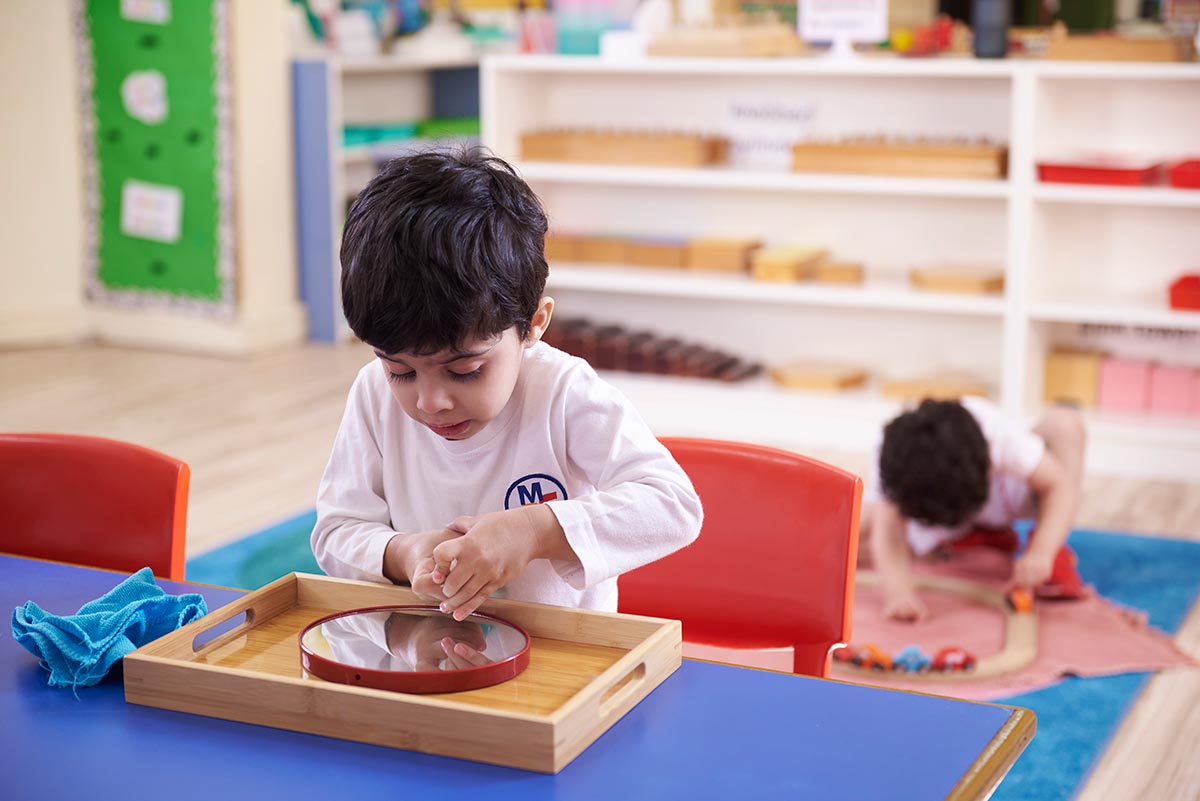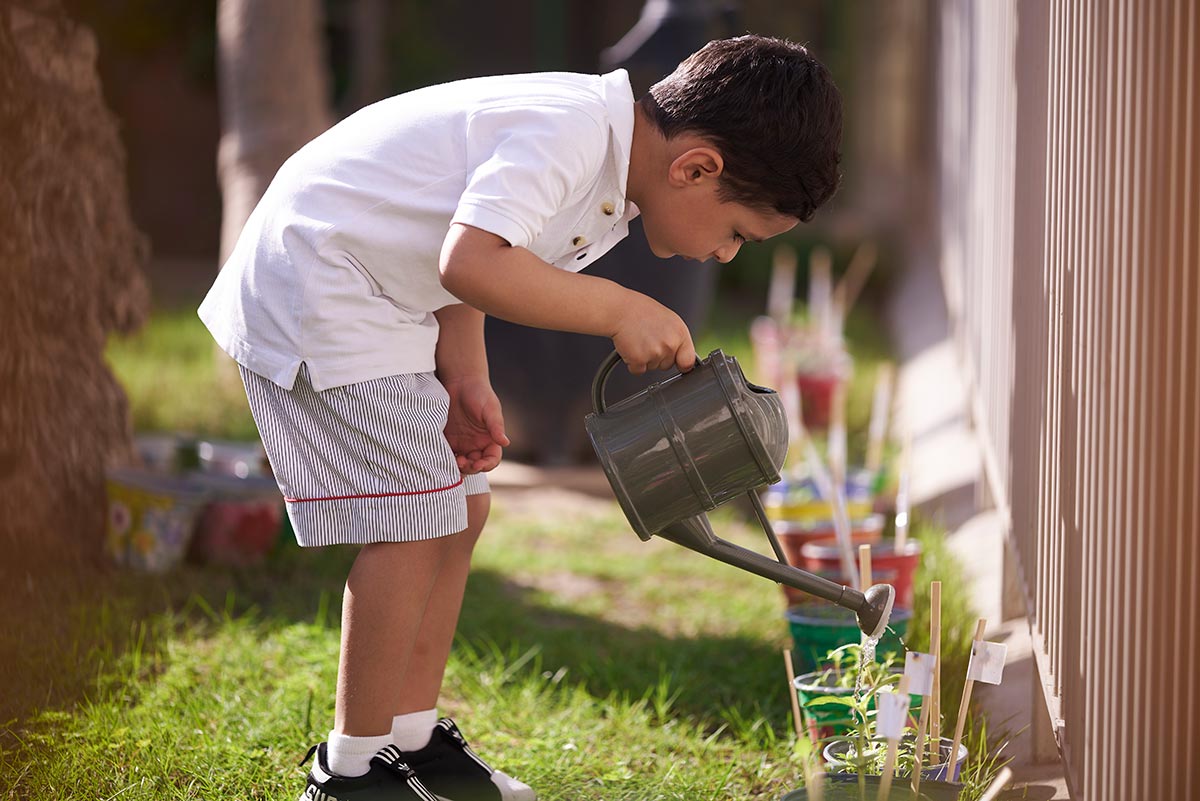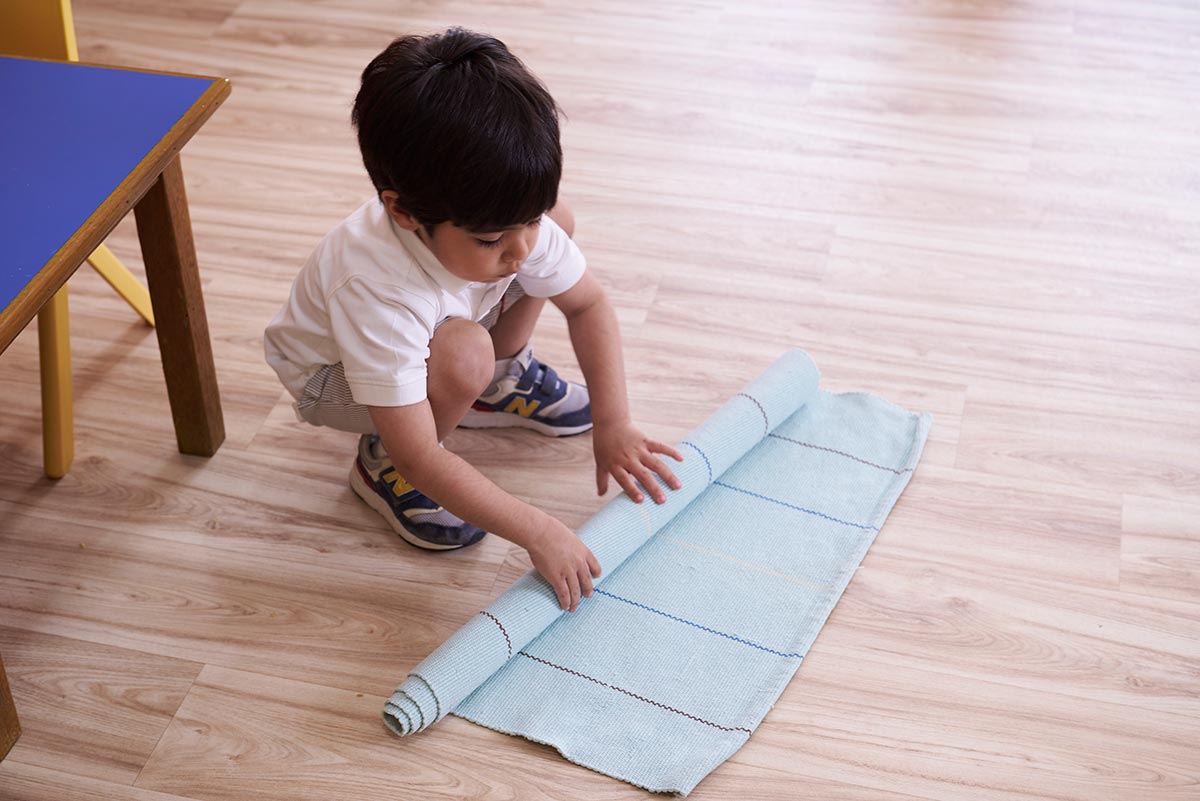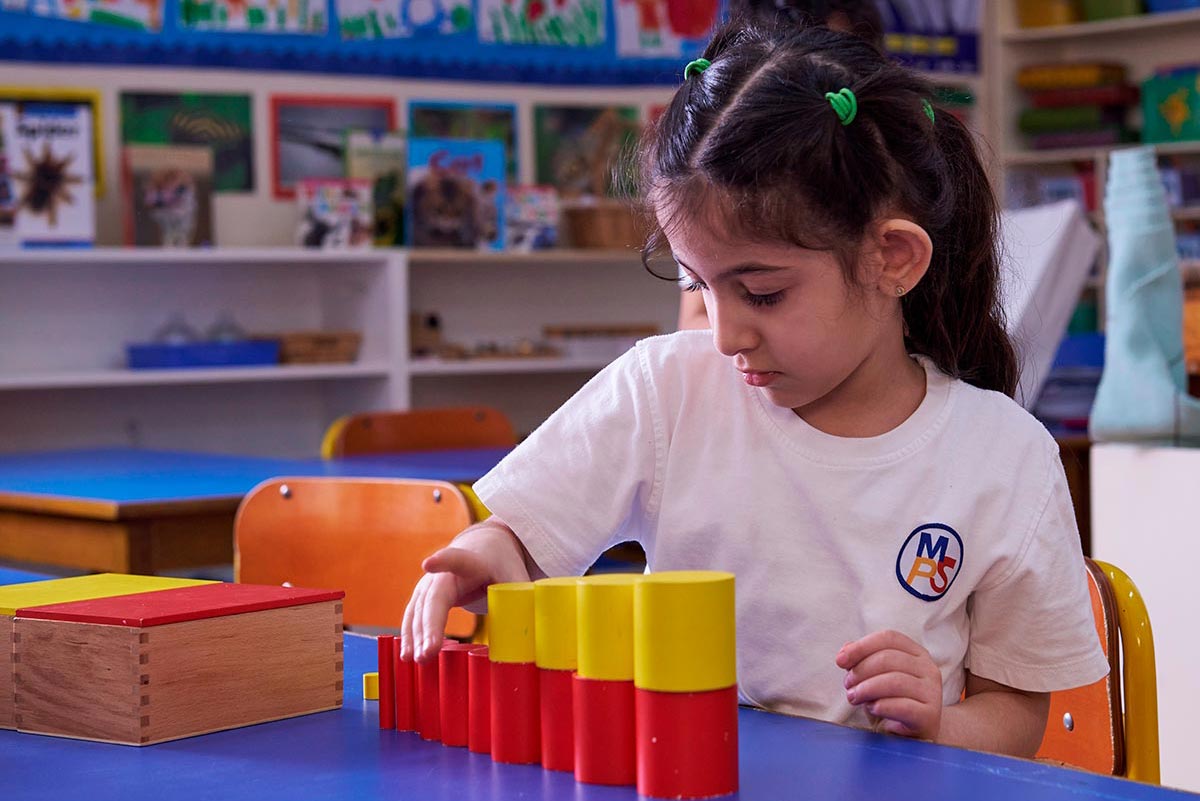Six Central Key Concepts of Montessori

Motivation
Maria Montessori found that children are born with an inner drive to learn. They will start exploring the world around them from a very young age, using all of their senses. This inner drive is the child’s motivation to start the process of talking, walking, eating, and learning basic skills.
In the Montessori classroom, this inner drive is facilitated and guided by the teacher, in order for the child to complete purposeful tasks successfully.

Respect
The golden rule in any Montessori classroom is to always show respect:
- Self-respect
- Respect for others
- Respect for the environment
- Respect for the Materials used in the classroom

Normalization through Work
Once a child has been introduced to a piece of work/material that interests him, he starts working with it with great concentration. While the child is concentrating on his work, his mental and physical energies combine, resulting in a state of -what Montessori calls- “Normalization”. This allows him to complete a task and experience the pleasure of success. He will then have learned the importance of the power of concentration.

Independence
One of the main goals of Montessori education is to enable children to become independent from a very young age. In order to achieve this, the teacher places the materials in an orderly way on the shelves, enabling the child to independently select something that has piqued his interest. Children are free to choose the activities they wish to work with, and are allowed the freedom to repeat the same activity over and over again, enabling the child to see what he did not at first notice.

Self-Discipline
The control of error present in most of the Montessori activities, allows the child to develop a sense of self-control or self-discipline. When a child cannot complete a task successfully, he sees that he has to change his approach, and so he repeats the task, until he achieves success; in both completing a task, and learning a new skill.
In this same way, the child gradually learns to control his movements, his impulses and his words, in order to also achieve social success, and therefore becomes self-disciplined.

Creativity
The Montessori method develops creativity by providing children with a sensory education of how the world really works. This knowledge lays the foundations for creative functions such as artistic expression, problem solving and creative solutions. The Montessori teacher demonstrates to the child, how the activities work. The child is then able to explore the materials by himself, leading to his own unique understanding of different concepts.

